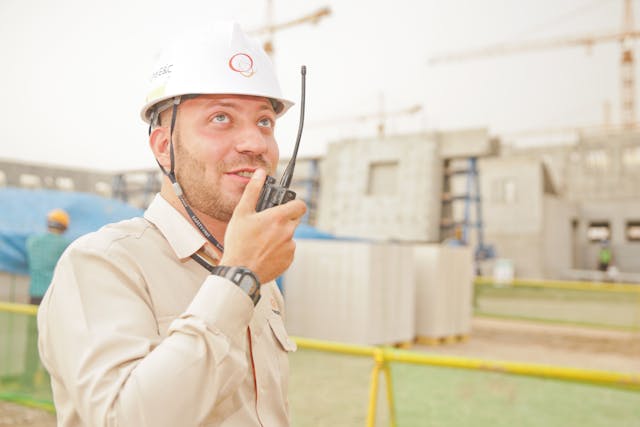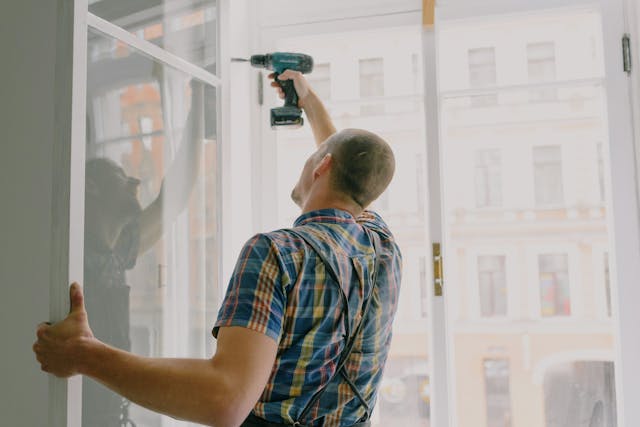Boost Your Home’s Efficiency: Energy-Efficient Upgrades
Energy-efficient upgrades are essential for homeowners looking to save on utility bills and improve their home’s sustainability. These upgrades not only reduce energy consumption but also enhance the overall comfort and value of your home.
Key Takeaway
- Energy-efficient upgrades help save on utility bills.
- They contribute to a sustainable and eco-friendly home.
- Upgrades can boost your home’s value and enhance comfort.
- Options range from insulation improvements to smart home technologies.

The Importance of Energy-Efficient Upgrades
Energy efficiency is more than just a trend; it’s a necessary step for reducing our environmental impact and creating more sustainable living spaces. For homeowners, making energy-efficient upgrades can lead to significant financial savings and a more comfortable living environment.
Common Energy-Efficient Upgrades
Proper insulation and air sealing are the foundations of an energy-efficient home. These measures prevent heat loss in the winter and keep your home cooler in the summer, reducing the need for constant heating and cooling.
Benefits:
- Lower heating and cooling costs.
- Enhanced indoor comfort.
- Reduced environmental impact.
Materials to consider:
- Fiberglass insulation.
- Spray foam insulation.
- Weather stripping.

Energy-Efficient Windows
Installing energy-efficient windows can significantly reduce energy loss. These windows are designed to minimize heat transfer, keeping your home warm during the winter and cool during the summer.
Key features:
- Double or triple-pane glass.
Low-E coatings.
Argon or krypton gas fills.
Smart Thermostats
Smart thermostats allow you to control your home’s temperature remotely and create schedules that maximize energy savings. They learn your habits and adjust accordingly, ensuring optimal comfort and efficiency.
Advantages:
- Remote control via smartphone.
- Energy usage reports.
- Learning capabilities.
LED Lighting
Switching to LED lighting is one of the simplest and most cost-effective energy-efficient upgrades. LEDs use less energy and last significantly longer than traditional incandescent bulbs.
Perks:
- Lower electricity bills.
- Longer bulb lifespan.
- Reduced heat output.
High-Efficiency HVAC Systems
Upgrading to a high-efficiency HVAC system can lead to substantial energy savings. These systems are designed to use less energy while providing superior heating and cooling performance.
Consider:
- Energy Star-rated systems.
- Variable speed motors.
- Zoned heating and cooling.
Advanced Energy-Efficient Upgrades
Solar Panels
Solar panels convert sunlight into electricity, reducing your reliance on the grid and lowering your energy bills. Installing solar panels can also make you eligible for various tax incentives and rebates.
Pros:
- Significant reduction in electricity costs.
- Renewable energy source.
- Tax incentives and rebates.
Heat Pump Water Heaters
Heat pump water heaters use electricity to move heat from the air or ground to heat water. They are more efficient than traditional water heaters and can cut your water heating costs by up to 50%.
Benefits:
- Lower energy bills.
- Reduced carbon footprint.
- Long lifespan.
Home Energy Management Systems
Home energy management systems monitor and manage your energy usage. These systems provide insights into your consumption patterns and suggest ways to improve efficiency.
Features:
- Real-time energy monitoring.
- Customizable energy-saving tips.
- Integration with other smart home devices.

Real-Life Experiences with Energy-Efficient Upgrades
A Homeowner’s Story: Insulation and Air Sealing
John, a homeowner in Winnipeg, noticed his energy bills were consistently high. After conducting an energy audit, he decided to upgrade his attic insulation and seal gaps around windows and doors. The result? John saw a 30% reduction in his energy bills and a more comfortable home environment.
The Impact of Smart Thermostats: Sarah’s Experience
Sarah installed a smart thermostat in her family home. She programmed it to lower the temperature at night and while the family was away during the day. The thermostat’s learning capability adjusted to their routine, leading to a 20% reduction in their heating and cooling costs.
Comparison of Common and Advanced Energy-Efficient Upgrades
| Upgrade Type | Average Cost | Energy Savings Potential | Installation Complexity |
|---|---|---|---|
| Insulation and Air Sealing | $1,500 – $5,000 | 10%-20% | Moderate |
| Energy-Efficient Windows | $300 – $1,000 per window | 15%-30% | High |
| Smart Thermostats | $100 – $300 | 10%-15% | Low |
| LED Lighting | $5 – $25 per bulb | 5%-10% | Low |
| High-Efficiency HVAC Systems | $3,000 – $7,000 | 20%-40% | High |
| Solar Panels | $10,000 – $30,000 | 50%-75% | High |
| Heat Pump Water Heaters | $1,500 – $3,000 | 30%-50% | Moderate |
| Home Energy Management Systems | $200 – $500 | 10%-30% | Low to Moderate |
Energy-Efficient Upgrades and Their ROI
| Upgrade Type | Average ROI (%) | Payback Period (Years) |
|---|---|---|
| Insulation and Air Sealing | 75% | 3-5 |
| Energy-Efficient Windows | 70% | 5-10 |
| Smart Thermostats | 80% | 1-2 |
| LED Lighting | 90% | Less than 1 |
| High-Efficiency HVAC Systems | 60% | 5-7 |
| Solar Panels | 100% | 5-10 |
| Heat Pump Water Heaters | 50% | 3-5 |
| Home Energy Management Systems | 70% | 2-4 |
Tips for Implementing Energy-Efficient Upgrades
- Conduct an Energy Audit: Start by conducting a professional energy audit to identify the areas of your home that need improvement.
- Prioritize Upgrades: Focus on the upgrades that offer the highest ROI and energy savings potential.
- Research Incentives: Look for local, state, and federal incentives that can help offset the cost of energy-efficient upgrades.
- Hire Qualified Professionals: Ensure that you hire experienced and certified professionals for the installation of complex upgrades like HVAC systems or solar panels.
- Monitor Your Usage: Use energy management systems to keep track of your energy consumption and make adjustments as needed.
FAQ: Common Questions About Energy-Efficient Upgrades
Are energy-efficient upgrades worth the investment?
A: Yes, energy-efficient upgrades can lead to significant savings on utility bills and increase the value of your home.
How can I find out which upgrades my home needs?
A: Conducting a professional energy audit can help you identify the most effective upgrades for your home.
Will I be eligible for tax incentives if I make energy-efficient upgrades?
A: Many energy-efficient upgrades qualify for local, state, and federal tax incentives. Check with your local authorities and the IRS for more information.
How long does it take to see the benefits of energy-efficient upgrades?
A: The payback period varies by upgrade, but many homeowners start seeing benefits within the first year, especially with upgrades like LED lighting and smart thermostats.
Can I do any of the energy-efficient upgrades myself?
A: Some upgrades, like installing LED lighting or weather stripping, can be done by homeowners. However, more complex upgrades, such as HVAC systems or solar panels, should be left to professionals.
Conclusion
Energy-efficient upgrades are a smart investment for homeowners looking to save money, reduce their environmental impact, and increase the comfort and value of their homes.
From simple changes like LED lighting to more complex upgrades like solar panels, there’s a wide range of options to suit every budget and need. Start by conducting an energy audit, prioritize your upgrades, and take advantage of available incentives to make your home as energy-efficient as possible.
By implementing these strategies, you can enjoy a more sustainable and cost-effective living environment, contributing to a greener future for everyone.
Call us today or schedule an appointment so we can improve your home efficiency!

